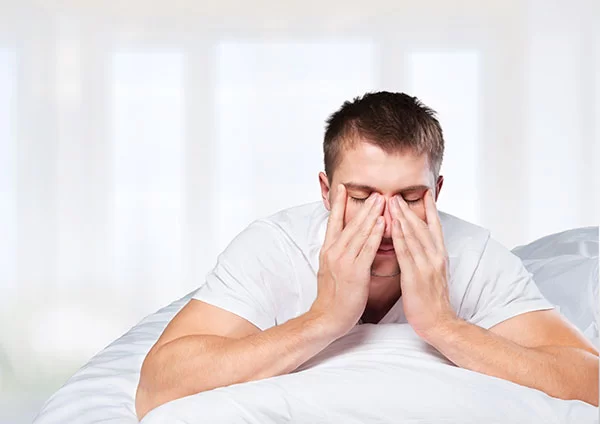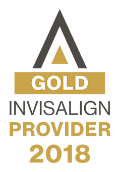Do You Experience Central Sleep Apnea?
Do you wake up feeling exhausted, despite a full night’s sleep? Are you struggling with morning headaches, irritability, or difficulty concentrating? These could be signs of central sleep apnea (CSA), a serious sleep disorder that affects how your brain regulates breathing during sleep.
If you’re in Tacoma, WA, or nearby areas like Lakewood, Puyallup, or Gig Harbor, our Tacoma dentist and dental team is here to help you find effective treatment options. Call our Tacoma dental practice today at (253) 761-5422 to schedule a consultation.

What Is Central Sleep Apnea?
Central sleep apnea is a sleep-related breathing disorder in which the brain doesn’t send proper signals to the muscles that control breathing. Unlike obstructive sleep apnea (OSA), which is caused by a physical blockage in the airway, central sleep apnea is rooted in the central nervous system. This disorder results in repeated pauses in breathing during sleep, disrupting rest and negatively impacting overall health. Central sleep apnea most commonly occurs during non-rapid eye movement (NREM) sleep.
While CSA is less common than OSA, affecting less than one percent of the population, it’s often linked to underlying conditions like heart failure, stroke, or high-altitude sleeping. Understanding the differences between central sleep apnea vs. obstructive sleep apnea is crucial for accurate diagnosis and treatment.
How Does Central Sleep Apnea Affect Your Body?
The brain’s respiratory center, located in the medulla oblongata, plays a critical role in regulating breathing. When this system malfunctions, it can lead to central respiratory events, causing breathing pauses and oxygen deprivation. Over time, untreated CSA can result in:
- Excessive daytime sleepiness
- Morning headaches
- Mood changes and irritability
- Increased risk of cardiovascular issues like heart failure or stroke
Types of Central Sleep Apnea
There are different types of central sleep apnea, such as:
- Cheyne-Stokes Breathing: Common in patients with heart failure or stroke, this pattern involves alternating periods of shallow and deep breathing. Addressing the underlying condition is key to managing this type of CSA.
- High-Altitude Periodic Breathing: Occurring at high elevations, this form of CSA is triggered by low oxygen levels and shorter breathing cycles.
- Complex Sleep Apnea: A combination of central and obstructive sleep apneas, often seen in patients undergoing CPAP therapy.
- Idiopathic Central Sleep Apnea: A rare form with no clear underlying cause, requiring specialized treatment.

Symptoms of Central Sleep Apnea
If you’re experiencing any of the following central sleep apnea symptoms, it’s time to consider a sleep study:
- Pauses in breathing during sleep
- Chronic fatigue and daytime sleepiness
- Difficulty concentrating or memory issues
- Morning headaches or shortness of breath
- Frequent nighttime urination
- Mood swings or irritability
Diagnosing Central Sleep Apnea in Tacoma, WA
Accurate diagnosis is the first step toward effective treatment. Our Tacoma clinic offers comprehensive sleep studies (polysomnography) to monitor:
- Brain activity
- Heart rate and breathing patterns
- Oxygen levels and ventilatory effort
We also evaluate your medical history and symptoms to identify underlying causes like heart failure, chronic pain, or medication use.
Treatment Options for Central Sleep Apnea
Here are some common treatment options to treat central sleep apnea:
- Continuous Positive Airway Pressure (CPAP): A common treatment that uses air pressure to keep your airway open during sleep.
- Bilevel Positive Airway Pressure (BiPAP): Offers two levels of pressure for more natural breathing, ideal for patients with severe central sleep apnea.
- Adaptive Servo Ventilation (ASV): An advanced therapy that adjusts airflow based on your breathing patterns.
- Supplemental Oxygen: Helps maintain oxygen levels during sleep, especially for patients with high-altitude periodic breathing.
- Lifestyle Changes: Weight loss, avoiding alcohol, and quitting smoking can significantly improve symptoms.
- Transvenous Phrenic Nerve Stimulation: A cutting-edge treatment for patients who don’t respond to traditional therapies.
Risk Factors and Complications of Central Sleep Apnea
Certain factors increase your risk of developing CSA, including:
- Age and gender (more common in men)
- Heart failure or stroke
- Obesity and smoking
- Narcotic use or chronic pain
Left untreated, CSA can lead to serious complications like cardiovascular disease, stroke, and worsening of existing conditions.
Frequently Asked Questions
What’s the difference between central and obstructive sleep apnea?
CSA is caused by the brain’s failure to regulate breathing, while OSA results from a physical blockage in the airway.
Can central sleep apnea be cured?
While there’s no one-size-fits-all cure, treatments like CPAP, BiPAP, and lifestyle changes can effectively manage symptoms.
How common is central sleep apnea?
CSA affects less than one percent of the population but is more prevalent in individuals with heart failure or stroke.
Take Control of Your Sleep Health Today
Don’t let central sleep apnea disrupt your life. If you’re in Tacoma, WA, or surrounding areas like Federal Way, Gig Harbor, or University Place, our dental team is here to help. Call our Tacoma dental office at (253) 761-5422 to schedule your consultation and explore personalized sleep apnea treatment options. Restore your sleep, improve your health, and reclaim your quality of life.





















